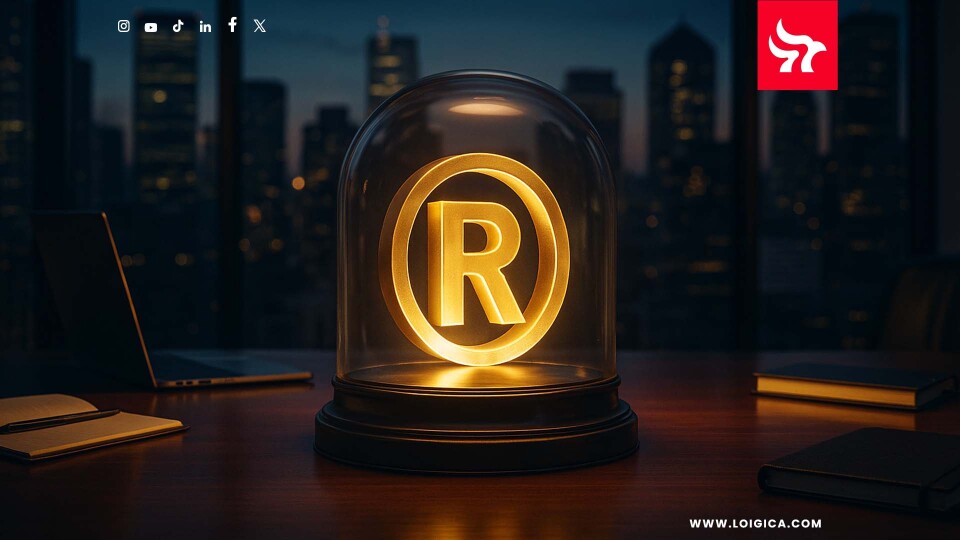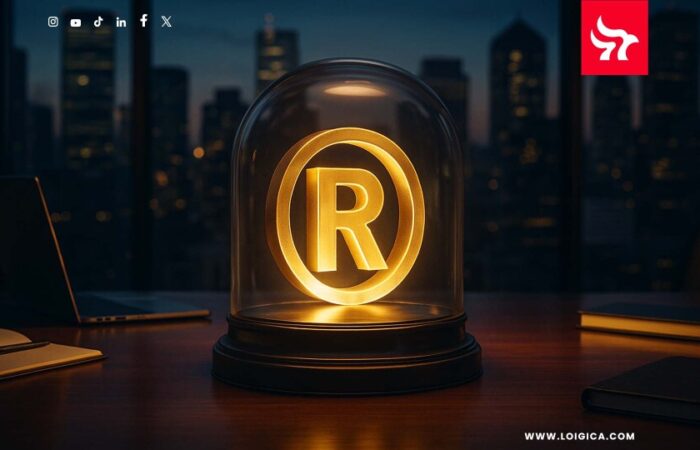In business, few assets are as valuable — and at the same time as vulnerable — as a brand. It’s not just a logo, a catchy name, or a slogan. A brand embodies reputation, consumer trust, and long-term value. In fact, according to Forbes, intangible assets like brands and intellectual property account for over 80% of the total value of companies in the S&P 500 (Forbes, 2023). However, many foreign founders looking to expand into the U.S. underestimate the risks of leaving their brand unprotected in one of the most competitive markets in the world.
Registering a brand in the U.S. is not just a bureaucratic task; it’s a shield. Without it, a company can become exposed to imitators, domain name cyber squatters, or even lawsuits from third parties who get to register first. While the U.S. system operates under the principle of “first-to-use,” the benefits for those who are “first-to-file” (the first to register with the United States Patent and Trademark Office (USPTO)) are enormous. According to the USPTO Annual Report 2024, more than 400,000 new trademark applications are filed each year, reflecting both the scale of protection and the intensity of competition for names and symbols that stand out in the market.
The risks of not protecting a brand are very real. Just remember the case of Tesla in China, which had to pay millions of dollars to reclaim the rights to its own name because a local businessman had registered it first (BBC, 2014). Or Burger King in Australia, where the company was forced to operate under the name “Hungry Jack’s” because someone else had already secured the brand (Business Insider, 2016). These examples show the consequences: market confusion, legal battles, and direct risk to reputation.
The U.S. market is both an opportunity and a battleground. With over 32.6 million small businesses operating in the country, according to the Small Business Administration (SBA, 2025), the chances of trademark conflicts are high. And in the age of e-commerce, sellers on Amazon, and global supply chains, a single unprotected brand can be exploited by counterfeiters anywhere in the world. A report by the OECD and EUIPO estimated that 3.3% of global trade in 2019 consisted of counterfeit goods, with the U.S. being one of the primary destinations (OECD, 2021). This is not just a statistic: it’s a direct threat to trust, revenue, and growth potential.
Protecting your brand in the U.S. also means thinking strategically about growth. Registration is often a requirement to secure venture capital, enter licensing agreements, or expand through franchises. Investors see trademark registration as proof that the company truly owns what it sells. It’s a legal moat that increases valuation. Just as a builder doesn’t build on land they don’t own, an entrepreneur cannot scale sustainably without owning their brand identity.
The analogies are clear. A brand is like a business passport. Without registration, your company can be “undocumented” in the U.S. market: vulnerable to displacement, blockage, or even expulsion from the commercial ecosystem. On the other hand, with a registered brand, your business crosses state borders freely, ensures recognition at customs, and stands firm in disputes.
At LOIGICA, we understand that protecting a brand is not just an administrative detail; it’s a growth strategy. We assist foreign founders and companies through the process of registration with the USPTO, from background checks to application, renewal, and defense. Even more, we integrate trademark protection into business and immigration strategies, so those who invest in the U.S. don’t just build companies, but legacies. Because in a country where borders blur but competition intensifies, owning your brand means owning your future.
Ready to protect your brand in the U.S.?
Contact us at LOIGICA. Growth begins with legal certainty.
📩 marketing@loigica.com | 🌐 www.loigica.com
This blog was written with asistance of generative AI. It is provided for informational purposes only. It does not constitute legal advice. The information presented here is based on general principles of U. S. immigration laws, as well as general information available for public search on public matters, as of the date of publication. Immigration laws and regulations are subject to change and individual circumstances may vary. If you need expert counceling on immigration matters, contact one of our attorneys.

Bona Fide Marriage Evidence | The Ultimate Green Card Checklist

Asset Protection vs. Estate Planning: Which Do You Need First?



